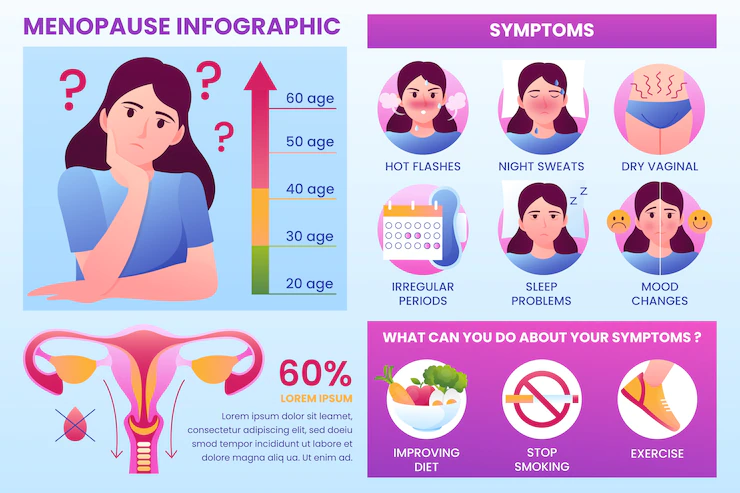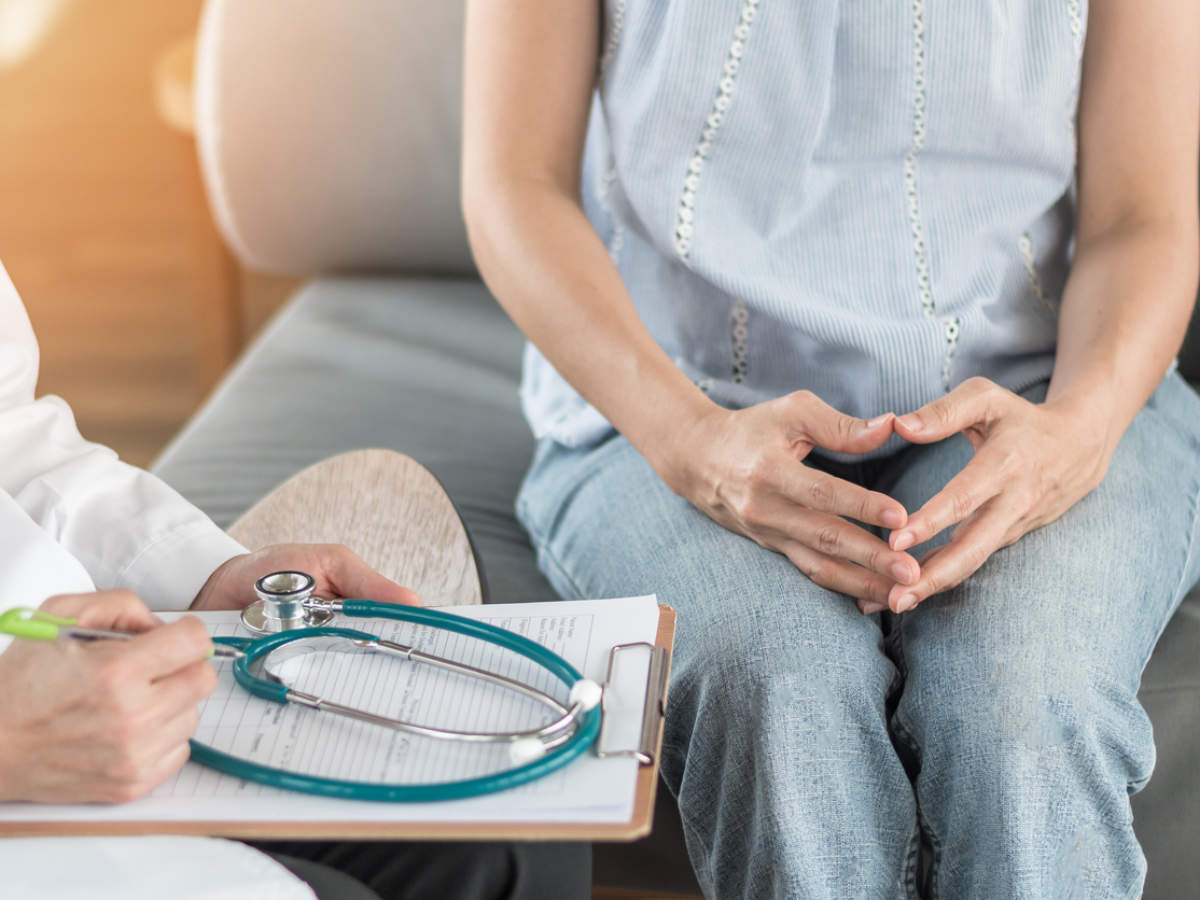
When a woman has gone 12 months without having her period and is no longer able to conceive naturally, menopause sets in. Although it can develop before or after this age range, it often starts between the ages of 45 and 55.
Unpleasant symptoms of menopause include hot flashes and weight gain. The majority of women do not require medical therapy for menopause.
How long does menopause last and when does
- About four years before their last period, the majority of women start to experience the first menopausal symptoms. Four years following a woman's last menstruation, symptoms frequently persist.
- One in ten women suffers menopausal symptoms for 12 years after their last period, while a small percentage of women experience menopausal symptoms for up to ten years before menopause occurs.
- Menopause typically occurs at age 51, while Black and Latina women may experience it up to two years sooner on average. More research is required to comprehend how menopause manifests in women of color.
- Numerous elements, including genetics and the condition of your ovaries, influence when menopause will start. Menopause is preceded by perimenopause. Your hormones start to change during perimenopause as you get ready for menopause.
- It can endure for a short while or for a long time. After reaching their mid-40s, many women start to experience perimenopause. Some women bypass perimenopause and approach menopause abruptly.
- Premature menopause, also known as primary ovarian insufficiency, occurs in about 1% of women before the age of 40. Between the ages of 40 and 45, menopause affects about 5% of women. This condition is known as early menopause.
Menopause vs postmenopause vs perimenopause
Periods become erratic during perimenopause. You can miss one or more periods entirely or have late periods. The amount of menstrual blood may also change.
Menopause is characterized by a one-year absence of menstruation.
Postmenopause is the term used to describe the years following menopause.
Causes of Menopause
Menopause is a biological process in which the ovaries produce fewer reproductive hormones as they age.
The body starts to perform several changes in response to lower levels of:
- luteinizing hormone
- follicle-stimulating hormone (FSH)
- estrogen
- progesterone
- testosterone
The absence of functioning ovarian follicles is one of the most obvious modifications. The organs that create and release eggs from the ovary wall to enable menstruation and fertility are known as ovarian follicles.
Most women first notice a decrease in their period’s regularity as the flow gets heavier and lasts longer. This typically happens sometime in the middle the to late 40s. Most American women reach menopause around the age of 52.
Menopause may occasionally be brought on by an injury to or surgical removal of the ovaries and associated pelvic tissues.
Induced menopause is frequently brought on by:
- bilateral oophorectomy, often known as ovarian removal surgery
- women with estrogen receptor-positive malignancies may have ovarian ablation, or the cessation of ovary function, using hormone therapy, surgery, or radiotherapy procedures.
Ovaries that have been badly damaged or destroyed as a result of pelvic injuries

Signs or symptoms accompany menopause
Menopause is a unique experience for every woman. Menopause that comes on quickly or gradually frequently has more severe symptoms.
The severity and duration of symptoms frequently worsen under circumstances that affect the health of the ovary, such as cancer or hysterectomy, or under specific lifestyle conditions, such as smoking.
Aside from menstruation changes, the symptoms of perimenopause, menopause and postmenopause are largely the same.
The following are the main early perimenopause symptoms:
- less regular menstrual cycles
- You may suffer vasomotor symptoms, such as hot flashes, night sweats, and flushing, with heavier or lighter periods than usual.
- Hot flashes are thought to affect 75% of women throughout menopause.
Other typical menopausal symptoms include:
- Sleeplessness vaginal dryness
- Gaining weight
- Melancholy, anxiety, attention deficits, and memory issues
- Diminished sex desire or libido
- Dry mouth, eyes, and skin
- More frequent urination
- Sensitive or painful breasts
- Headaches
- Urinary tract infections and a beating heart (UTIs) decreased muscle mass
- Stiff or painful joints
- Reduced breast size and decreased bone mass
- Loss or thinning of hair
- More body hair growth, especially on the face, neck, chest, and upper back
Treatments
- Topical minoxidil 5%, used once daily for hair thinning and loss antidandruff shampoos, usually ketoconazole 2% and zinc pyrithione 1%, used for hair loss
- Eflornithine hydrochloride topical cream for unwanted hair growth selective serotonin reuptake inhibitors (SSRIs), usually paroxetine 7.5 mg for hot flashes, anxiety, and depression
- nonhormonal vaginal moisturizers and lubricants low-dose estrogen-based vaginal lubricants in the form of a cream, ring, or tablet ospemifene for vaginal dryness and painful intercourse
- preventive antibiotics for recurrent UTIs sleep medicines for insomnia
- Postmenstrual osteoporosis treatment options include denosumab, teriparatide, raloxifene, or calcitonin.
Other treatments
A few small studies have found that herbal treatments can help with menopausal symptoms caused by estrogen insufficiency.
Natural supplements and nutrients that may aid in the reduction of menopausal symptoms include:
- Vitamin E isoflavone melatonin flax seed
- black cohosh can help with symptoms like hot flashes and nocturnal sweats.
- Quitting smoking and minimizing alcohol consumption
- Stop smoking and avoid secondhand smoke exposure. Cigarette smoking may aggravate your symptoms.
You should also limit your alcohol consumption to avoid symptoms intensifying. Heavy drinking during menopause may raise your chances of developing health problems.

